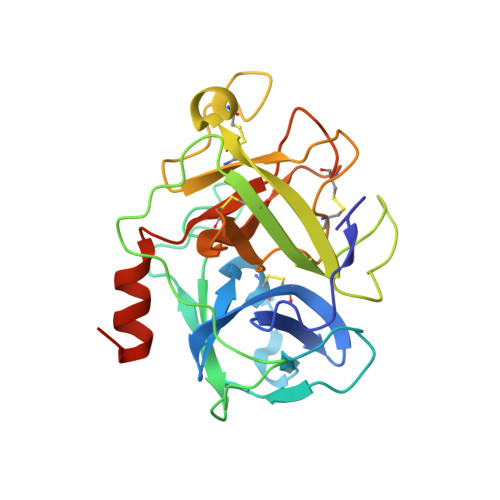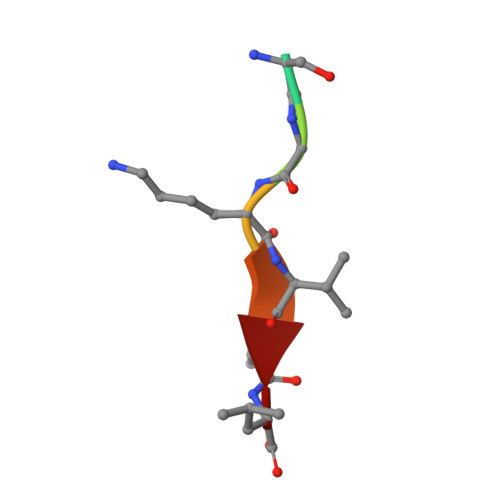Structural basis for proteolytic specificity of the human apoptosis-inducing granzyme M
Wu, L., Wang, L., Hua, G., Liu, K., Yang, X., Zhai, Y., Bartlam, M., Sun, F., Fan, Z.(2009) J Immunol 183: 421-429
- PubMed: 19542453
- DOI: https://doi.org/10.4049/jimmunol.0803088
- Primary Citation of Related Structures:
2ZGC, 2ZGH, 2ZGJ, 2ZKS - PubMed Abstract:
Granzyme M (GzmM), a unique serine protease constitutively expressed in NK cells, is important for granule-mediated cytolysis and can induce rapid caspase-dependent apoptosis of tumor cells. However, few substrates of GzmM have been reported to date, and the mechanism by which this enzyme recognizes and hydrolyzes substrates is unknown. To provide structural insights into the proteolytic specificity of human GzmM (hGzmM), crystal structures of wild-type hGzmM, the inactive D86N-GzmM mutant with bound peptide substrate, and the complexes with a catalytic product and with a tetrapeptide chloromethylketone inhibitor were solved to 1.96 A, 2.30 A, 2.17 A and 2.70 A, respectively. Structure-based mutagenesis revealed that the N terminus and catalytic triad of hGzmM are most essential for proteolytic function. In particular, D86N-GzmM was found to be an ideal inactive enzyme for functional studies. Structural comparisons indicated a large conformational change of the L3 loop upon substrate binding, and suggest this loop mediates the substrate specificity of hGzmM. Based on the complex structure of GzmM with its catalytic product, a tetrapeptide chloromethylketone inhibitor was designed and found to specifically block the catalytic activity of hGzmM.
- Center for Infection and Immunity, Institute of Biophysics, Chinese Academy of Sciences, Beijing, China.
Organizational Affiliation:


















